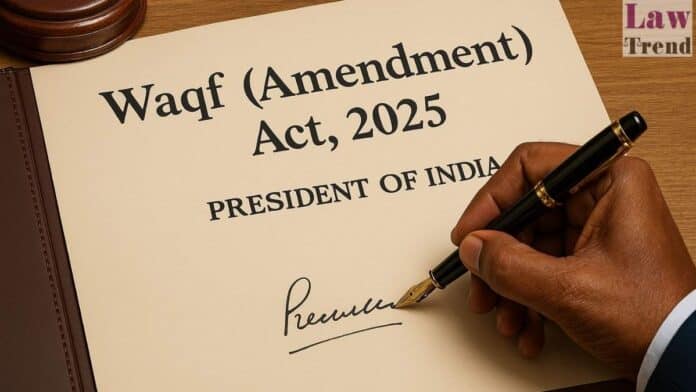During the ongoing hearings in the Supreme Court on the constitutional validity of the amended Waqf law, much of the legal debate has come to revolve around a single term—‘Waqf by User’. From Chief Justice of India Sanjiv Khanna to senior advocates Kapil Sibal and Abhishek Manu Singhvi, several voices have questioned the government’s decision to tamper with this clause. The Court has now scheduled detailed arguments on this very issue, with the government expected to present its justification on Thursday. But what exactly is ‘Waqf by User’, and why has it become such a crucial issue?
The Triggering Question
Senior Advocate Kapil Sibal kickstarted the debate by pointing out that ‘Waqf by User’ is a key condition for recognizing a property as Waqf. “Suppose I own a piece of land and I decide to build an orphanage on it—what’s the issue?” Sibal asked. “It’s my land, and I want to use it for a social purpose. Why should the government insist on registration?”
In response, CJI Sanjiv Khanna noted that while registration makes it easier to maintain records, the government has effectively removed the ‘Waqf by User’ provision altogether. This drew concern from several corners of the courtroom.
Justice’s View on Legal Safeguards
Justice S. V. N. Bhatti (referred in the original context) explained the rationale behind registration requirements: “The law mandates registration to prevent fraudulent claims.” Hence, a Waqf Deed should exist as proof. However, Kapil Sibal countered by arguing that such expectations are not practical. “Many Waqf properties are hundreds of years old,” he said. “How can the government now ask people to produce deeds from 300 years ago?”
The bench acknowledged the complexity of the issue and emphasized that it warrants deeper examination. As a result, the Court has scheduled exclusive arguments on ‘Waqf by User’ for Thursday.
So, What Exactly is ‘Waqf by User’?
In Islamic tradition, Waqf refers to the permanent dedication of a property—such as land or a building—for religious or charitable purposes, in the name of Allah. The idea is that the property is no longer held for personal gain but is meant to serve society—by supporting mosques, schools, hospitals, or shelters for the poor.
Now, ‘Waqf by User’ is a concept where a person continues to use the property (without formally transferring ownership or registering it), while declaring that the usage is solely for religious or charitable purposes. Legally, the person is no longer the “owner” in the conventional sense but remains the user for a Waqf-related function.
The Core Legal Tussle
The core issue before the Supreme Court is whether such long-standing usage—without formal registration or documentation—should be recognized under law. Critics of the amendment argue that removing ‘Waqf by User’ could invalidate countless properties that have been treated as Waqf for generations, especially in rural and under-documented areas.
The government’s decision to alter this clause, critics say, may amount to erasing historic practices and violating religious freedoms. On the other hand, the state argues that unregistered claims can lead to misuse, land disputes, and administrative chaos.
As the top court prepares to hear the government’s arguments on Thursday, all eyes are on how it will balance historical religious practices with modern legal standards of property registration.




